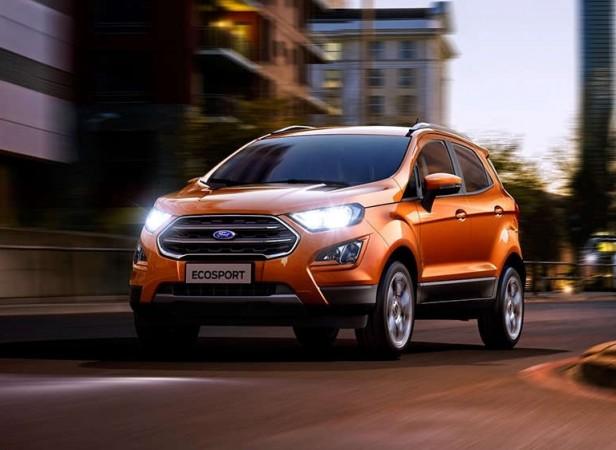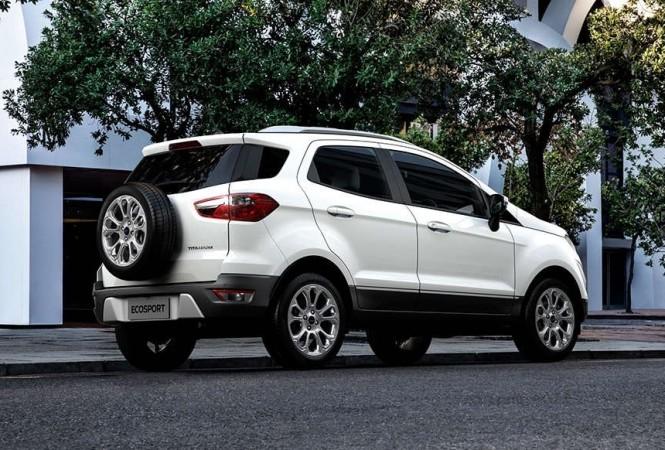
The American automaker Ford's EcoSport is the pioneer in India's compact SUV segment. Launched in 2013, the EcoSport's design is now dated and hence the company has decided to launch an updated version. The 2017 EcoSport will enter the market on November 9 and Ford has added much more than cosmetic upgrade in the new version.
The main difference between the new EcoSport and the outgoing models is upfront. The EcoSport comes with a single-piece large grille inspired from bigger SUVs of Ford such as the Kuga and the Edge. The headlamps, fog lamps and the front bumper have been tweaked and at the rear, spare wheels remain untouched while global spec forgoes it.

Apart from all these cosmetic upgrades, 2017 Ford EcoSport comes with 5 thoughtful new additions.
Dragon engine- The new EcoSport will mark the debut of Ford's all-new Dragon series of petrol engines. The current 1.5-litre Ti-VCT mill is replaced with the 1.5-litre three-cylinder unit and it will develop 123hp of power and 150Nm of torque.
6-speed automatic gearbox- The new petrol mill will also come mated to six-speed automatic transmission. The will replace the twin clutch unit in the outgoing version. The advanced automatic transmission will also give the EcoSport an edge over the rivals.
Titanium S variant- Spy images indicate the top-of-the-line variant of the EcoSport will be Titanium S. The new variant will come with some sportier add-ons like dark grey-finished alloy wheels, black colour treatment to the front grille and smoked headlamps. The black colour touches are also expected at extended to front fog lamp bezels, roof rails and rear spoiler.
17-inch alloy wheels- One of the USP for the new EcoSport will be the wheels. The higher variants will come in 17-inch alloy wheels shod with 205/50 R17 tyres. This is a first in segment unit and the tyres look to fit in the wheel well of the SUV.
Tyre pressure monitoring system- Yet another first-in-the-segment feature in the new EcoSport is the tyre pressure monitoring system (TPMS). It'll be offered on the top-end Titanium+ variant.

Source: Cartoq

















![India Auto Roundup: Maruti Suzuki, Mahindra have exciting launches in November [details here]](https://data1.ibtimes.co.in/en/full/805520/india-auto-roundup-maruti-suzuki-mahindra-have-exciting-launches-november-details-here.jpg?w=220&h=135)